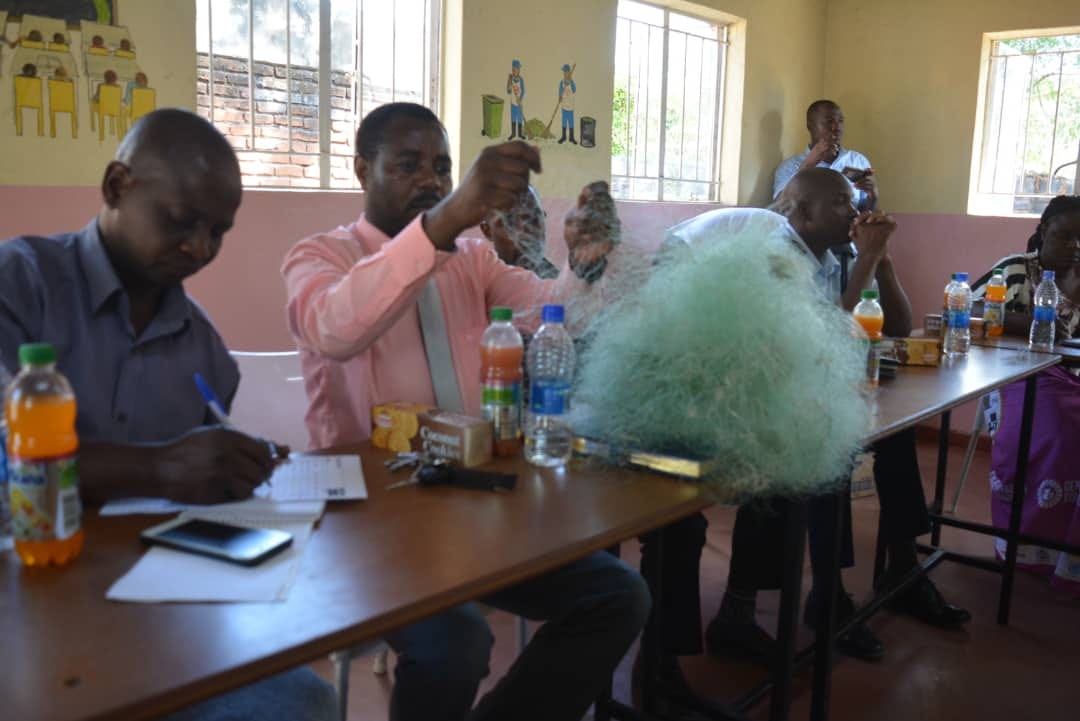Authorities Concerned Over Illegal Fishing Gear in Malawi
Mangochi authorities concerned about illegal fishing gear, writes Ernest Mfunya.
Mangochi, Malawi – Authorities in Mangochi have expressed concern over the widespread use of illegal fishing gear in Lake Malawi and Lake Malombe, writes Ernest Mfunya.
“We invited stakeholders at the district level, whereby we were discussing issues to do with illegal fishing in Mangochi,” said District Fisheries Officer (DFO) Nevarson Msusa.
“As a department, we have noted that there are a lot of fishing gears entering our district that are destructive to fish, such that fish are not able to regenerate.”
According to research conducted by the fisheries department on cumulative fish catch composition from 2017 to 2022, the annual fish catch has been steadily declining.
For instance, in 2020, the department recorded a cumulative catch of 38 thousand metric tonnes, which dropped to 30 thousand metric tonnes in 2022, signalling a continuous decline in fish availability.
“As of the past years, cumulative catch trends of fish in the district have been decreasing, for example in 2020 the department recorded thirty-eight thousand metric tons while in 2022 the cumulative catch composition reduced to thirty thousand metric tons of fish meaning that fish is reducing every year,” Msusa explained.
Sam Manda, the District Project Manager for Ripple Africa, an organisation implementing the Fish Conservation Project in Lake Malawi, highlighted that illegal fishing gear has been modified to catch fish in excessive amounts.
He emphasized the importance of using recommended gear to preserve fish populations, allowing them to regenerate and sustain future fishing activities.
“We all know that fish regenerates, fish has to restore itself or bleed so unlike the use of recommended gears, illegal gears are able to destroy fishing grounds and catch small fish that are to be used for future bleeding,” Manda added.
Elias Zulanga, a fish net seller in the district, expressed gratitude for the meeting, stating that it provided him with valuable insights into fishing rules and regulations, of which he previously had limited knowledge.
Zulanga pledged to collaborate with other fish net sellers to raise awareness about the detrimental impact of illegal fishing gear and the consequences of selling prohibited equipment.
“I had no knowledge about the regulations. Going forward, I am going to take an active role in engaging other fish net sellers and sensitize them on the impact of illegal fishing gears and also the consequences one would face if found selling the prohibited gears,” Zulanga assured.
Aushe Chindamba, Chairperson of the Madina Beach Village Committee (BVC), emphasized the committee's responsibility to conduct patrols day and night, ensuring fishermen adhere to the rules and regulations designed to protect fish species.
However, Chindamba acknowledged that resource constraints often hinder their efforts, resulting in increased usage of illegal gear like Monofilament nets.
“Our job as Beach Village Committees is to complement the government's efforts by ensuring that fishermen are following rules and regulations that were put in place in order to protect various species of fish. However, due to lack of resources, most BVCs fail to do their jobs, resulting in increased usage of illegal gears like Monofilament when fishing,” said Chindamba.
Chindamba added, “Going forward, we are going to take an active role to ensure compliance by fishermen who operate on various beaches. Any breach will lead to confiscation of the gear as well as being taken to the police for custody.”
The stakeholders’ meeting served as a platform to address the urgent need to combat illegal fishing practices and promote sustainable fishing methods, aiming to preserve the diverse fish species and secure the livelihoods of fishing communities in Mangochi District.



